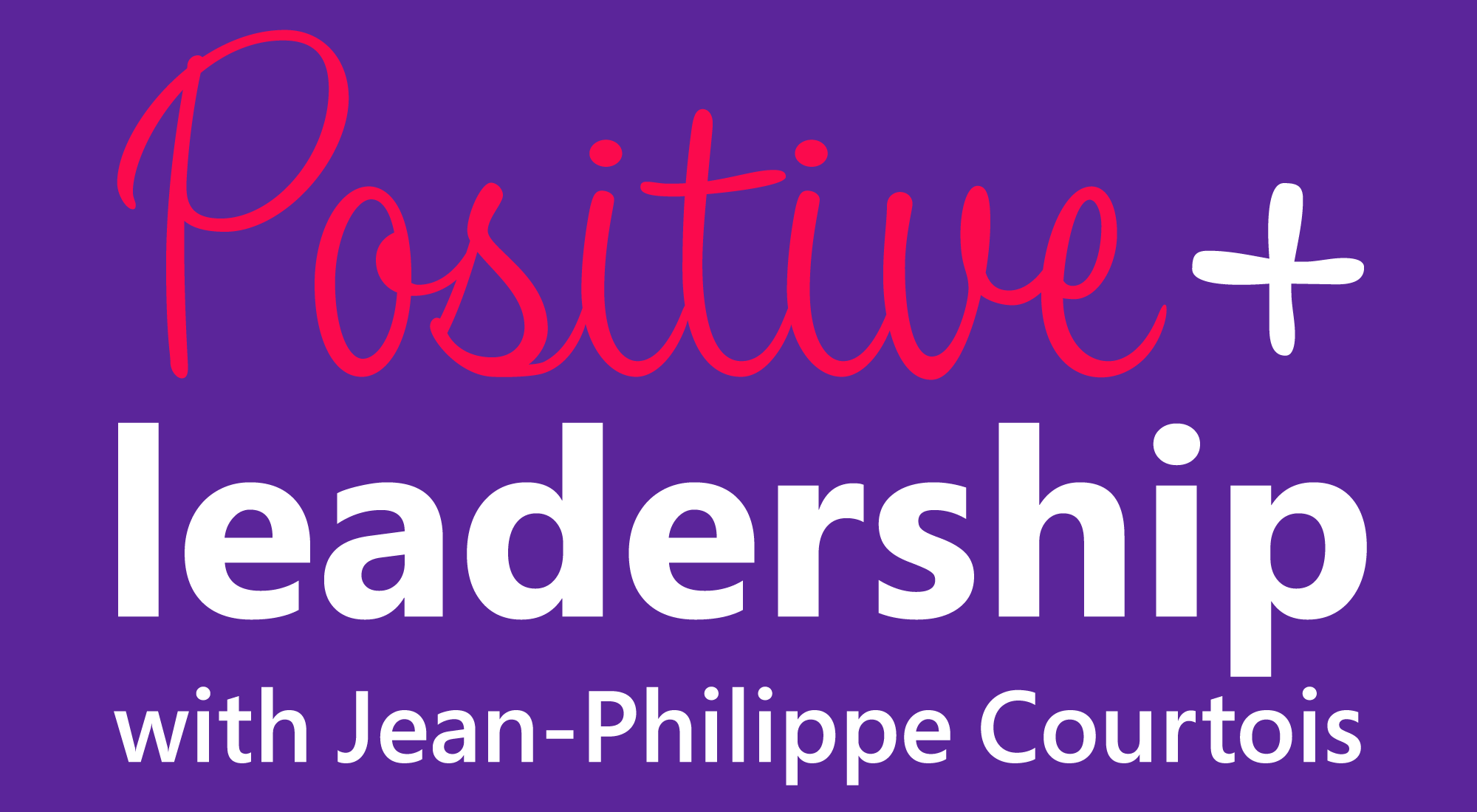31 Jan 24
How Positive Leadership encourages positive well-being

Welcome to the Positive Leadership & You newsletter. This month, we consider how Positive Leadership encourages positive well-being.
Positive leaders like Arianna Huffington know that one of the first steps to practicing positive leadership is taking care of yourself, your physical energy, and your mental energy, every single day.
For physical wellbeing, this might start with something small, like taking a cold shower first thing in the morning, going for a walk outside at lunch, or making sure you get enough sleep at night. For good mental health, it could be naming three things you are grateful for. Or committing to a small act of kindness each day. But when we have a busy schedule, our well-being is one of the first things we neglect.
I recently interviewed Matthieu Stefani , serial entrepreneur, host of the podcast, Génération Do It Yourself, and an expert in helping people make every day count.
One method he uses to stay on top of his well-being is to create “automatic rules that can be likened to a form of discipline”. For Matthieu, this means first, exercising as much as he can, and second, setting himself a goal that gives him no excuse not to.
His energy is infectious, and if you speak French, I highly recommend listening to my conversation with him.
[FR] Faire en sorte que chaque jour compte (avec Matthieu Stefani)All of us can start by building habits. Take five minutes to think about the daily routine you can build for yourself to benefit your physical and mental health.
To understand how we can look after ourselves better, we also need to become more actively aware of what constitutes our well-being and happiness. This is something Martin Seligman, who is credited as being the father of positive psychology, knows a great deal about.
Set out in his influential book Flourish, Martin’s PERMA™ model conceptualizes the main factors contributing to positive wellbeing. These are:
Positive emotion, Engagement, Relationships, Meaning, and Achievement.
Each pillar is a building block for a life of profound positive well-being. My conversation with Martin was one of my favorite episodes so far – you can get inspired by listening in full below…
Paving the way to positivity (with Dr. Martin Seligman)Martin had another message for leaders, which I think is important to reflect on:
- Hire happy people
- Do coaching for workforce well-being
Recommended by LinkedIn
Why? Because happiness not only increases well-being but it also increases our productivity, and the impact can be enormous. A recent study published in Management Science finds that each one unit increase in happiness on a scale of zero to 10 led to a 12% increase in productivity.
Over the last few years, business and team leaders have rightly focused more on employee wellbeing. At Microsoft, we created a “model-coach-care” framework for managers, which you can learn more about on this LinkedIn course.
When I sat down with my own manager, Microsoft Executive Chairman and CEO, Satya Nadella on my podcast, he said that it was during the pandemic especially where he saw the benefits of this framework really come to life:
A leader, a manager who understood what it meant to provide that flexibility, care for their people, and yet at the same time, move the mission and the project forward, was – I felt – everything.
Leading people is a privilege, and every leader has a duty to care for the people they lead.
Finding meaning in your work (with Satya Nadella, Microsoft CEO)Positive wellbeing is also about having a purpose in life. It’s something I think about and talk about a lot. So ask yourself: what’s your motivation? What truly matters? Your purpose might evolve over time, it does for many of us. And purpose can mean many different things to people. It might be to take care of your family. Or to improve something in your community. It could also be to fight inequality, or work towards a solution for climate change. Your purpose is personal to you.
Acumen founder and CEO Jacqueline Novogratz ’s bestselling book, Manifesto for a Moral Revolution, calls for us to reimagine and reform technology, business and politics:
The urgent challenge for our times is to reimagine capitalism as a tool to enable our wholeness rather than to reinforce our separation.
Or, in simpler terms: the way we've been doing things is not getting us to where we need to go. We need more than ever, to create innovative solutions and institutions for positive societal and environmental progress. It’s about putting human and planetary well-being first.
Towards the end of our conversation, I asked Jacqueline to share how all of us can start writing our manifesto for positive impact in life. She told me:
I would think about it in three ways: my purpose, my means, and then the values by which I will go after it… Even if the words scare you, write them down. This becomes the story you will tell. And more importantly, it becomes the story of who you will be.
Jacqueline's story and perspective is one of patience, humility, beauty and dignity. I’ve found her book truly inspirational and urge you to read it. Ultimately, it gave me optimism and hope. There is so much good we can do, with a positive, purpose-driven mindset.
Take care of yourselves.
Building a better world together (with Jacqueline Novogratz)All the best
-jp







